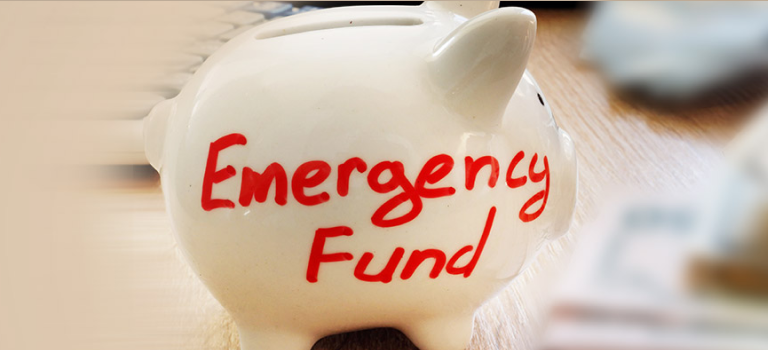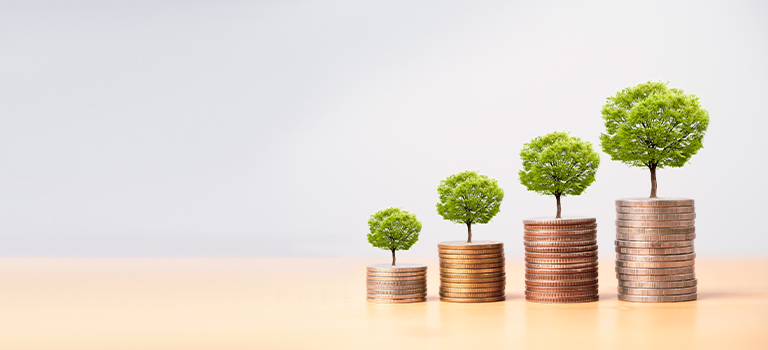

Table of Contents
Hindsight is good, but foresight is better. You may be earning well in a cushy job today, but tomorrow could well be a different ball-game. An emergency fund should be a key constituent of your financial security. An emergency fund can help you look forward to the future without worrying about sudden expenses.
One thing sure about emergencies
Emergencies can invariably occur, and when a financial emergency strikes you need to be prepared. Every individual and family have a certain set of fixed expenses every month which range from grocery bills, utilities, EMIs, rent, school fees, etc.
Without an emergency fund, any income loss can have a deep impact on your finances. This is because while your income will stop, your expenditures won’t. An emergency fund can help you tide over the short period where outflows are much greater than inflows. No matter how hard it is to save, you do need to build an emergency fund. Your emergency fund needs to be liquid enough for you to be able to withdraw and use whenever required. You may choose to park your fund in a bank account, a term deposit or liquid mutual funds . Check out Standard Chartered’s offerings here.
How much is sufficient
We live in an economic environment when anything can happen. The emergency fund is for a situation when bad things happen. Loss of employment or health reasons may keep some out of action for a few months. Or it could be a time when there is a sudden need to part with a large amount of money and you have no other option but to meet it. So, it is imperative to save for a separate emergency fund. These funds should not be kept in your normal banking account so that you do not get to touch them except in the case of an emergency. Opening a separate 2-in-1 savings account could be a smart move, where you can park your money in a fixed deposit but also get the flexibility of a savings account.
Many people ask how much should be saved in emergency funds. Well, the correct answer depends on your needs. It is ideal to save in multiples of your monthly expenses. You should, at a minimum, have an emergency cushion that can take care of 6 months of your expenses, extending to 10-12 months of your monthly expenses. This will ensure that in the worst scenarios, your goals are covered for those 10-12 months.
No loans required
In the absence of an emergency fund, people tend to look at personal loans to fulfill the monetary gap. This is especially true for healthcare expenses. While your emergency fund will tide you over in this case, a timely health insurance can ensure that huge medical bills do not have to be funded out of your own pocket. Apart from medical emergencies, house repairs, automobile repairs, and sudden need for cash for a family member may trigger an emergency money requirement. Personal loans are a high-cost method of tending to financial needs. If you have a proper emergency fund, you can use the savings to comfortably tide over the difficult period.
An emergency savings fund is essential for an individual’s financial health and well-being. Many families have faced extreme difficulties by not creating and maintaining an emergency fund. By depositing a small amount each month, you can easily have a solid and robust emergency fund within a few years. You can start with Systematic Investment Plans to build such a fund, and once you reach the desired corpus you can park the amount in liquid instruments that will ensure that you have the money at hand when you need it.
FAQs on Emergency Funds
1. How much money should I keep in my emergency fund?
Aim for at least 6 months of basic living costs, which may extend to 9 to 12 months if income is irregular or you have dependents.
2. Where should I park my emergency fund for optimal access and safety?
You many choose to keep funds in liquid, low-volatility instruments such as savings accounts, sweep-in FDs linked to savings, or liquid mutual funds.
3. Is it acceptable to partially invest emergency funds for better returns?
While one can choose to invest a small portion of their emergency funds to beat inflation, it is advisable to have most of it remain immediately accessible and stable.
4. How long does it take to build a sufficient emergency fund?
Depending on income and expenses, it may take 6 to 18 months. To do so, one can start small. However, one must make regular contributions to it, to ensure they can build it up in time. Consistency matters more than speed. Start smart with Standard Chartered .
5. What common mistakes prevent an emergency fund from being effective?
Typical mistakes include: using the fund for lifestyle spending, underestimating monthly expenses, and keeping it in volatile investments that may lose value when needed.
6. Can insurance replace the need for an emergency fund?
Insurance helps cover medical or income risks but cannot handle daily living costs or short-term liquidity needs. Emergency funds work in tandem with insurance to avoid debt during emergencies.
7. Should an emergency fund change as life stages evolve?
Yes. Depending on career stability, dependents, health risks, or job security, your fund size should be reassessed periodically, or when transitioning jobs.
8. Can I rely on credit cards or loans instead of an emergency fund?
Relying on credit or personal loans adds high-cost debt and financial stress. An emergency fund provides immediate, interest-free access to liquidity.



